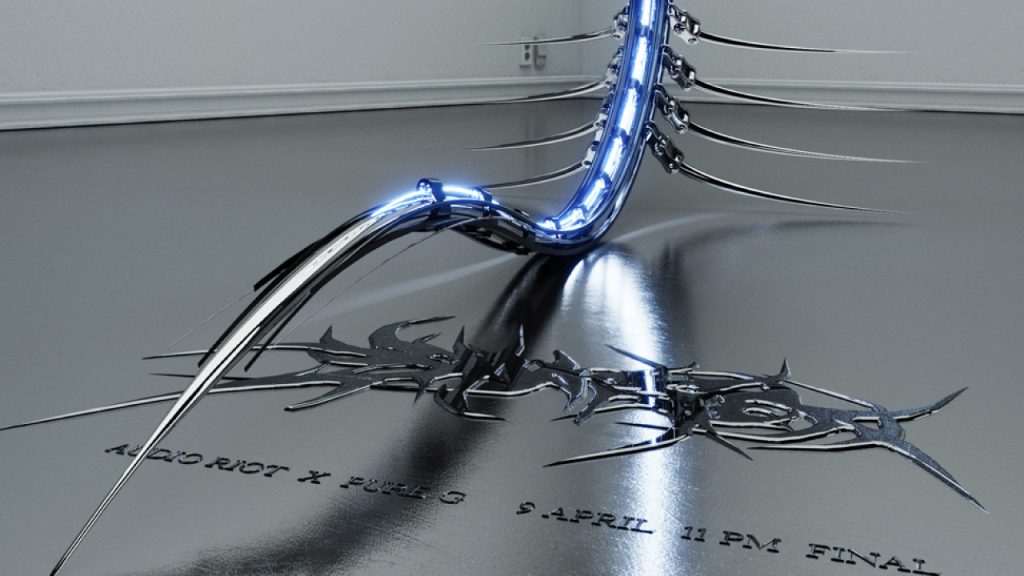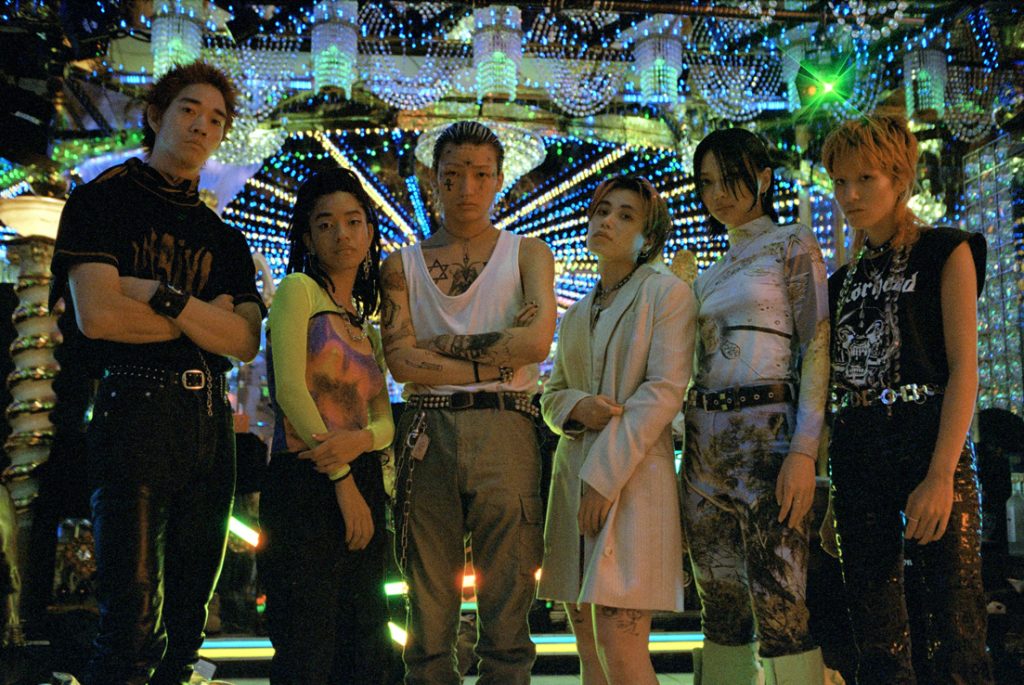身体データとバーチャル・アイデンティティの所有権|YUEN HSIEH interview
2024/07/04
DIGITAL BODY COPYRIGHT

Text : JACKSON kaki
──まず基本的な情報の質問からさせてください。YUENはデジタル技術、映像などを用いて作品を作ってきました。今回も同じように3DCGの仮想世界を創造し、そのなかで引き起こされる物語のテーマとして「DIGITAL BODY COPYRIGHT」があるのですよね?
その通りです。私は個人的なプロジェクトでデジタル技術と映像を使うことにいつも情熱を注いできました。今回の『DIGITAL BODY COPYRIGHT』では、Unreal EngineとStable Diffusionを使って、未来的な仮想世界を構築しています。この物語は、デジタル時代における身体データとバーチャル・アイデンティティの所有権の問題を掘り下げ、これらの懸念から生じる倫理的・社会的課題を探求しています。
この作品の背景にあるコンセプトは、AIの急成長に深く影響を受けている。AIは多くの人間のスキルや機能を複製し、代替できるところまで進歩しており、アイデンティティ、所有権、管理について重大な問題を提起している。このような状況の中で、『DIGITAL BODY COPYRIGHT』は、私たちの身体データやバーチャルな自己が、いかにして商品化され、強力な存在によってコントロールされうるかを検証している。Unreal Engineのような高度な技術を使うことで、私たちのデジタルなアイデンティティと物理的なアイデンティティがさらに絡み合い、操作の対象となる世界に生きることの意味合いについて、観客に考えるよう促す、視覚的に没入感のある体験を作り出すことを目指しています。
この映画を通して、前例のない技術進歩の時代における私たちのデジタルな身体とデータの権利と保護について、思考と会話を喚起したいと思います。
──このプロジェクトの物語についての質問をします。とても興味深い話だと思いますし、実際に現実にも起こりうる可能性のある権利として、人間のDNAがデータとして扱われると私も考えています。そこで起こりうることとして、人間に優劣はあるのか?という考え方が発生すると予想しました。このようなテクノロジーの数値によって人間の優劣、または優勢思想に結びつく考え方は倫理的な危険性がはらんでいると思います。その点はどのように考えてますか?
鋭い質問をありがとうございます。確かに、人間のDNAをデータとして扱うという考え方と、そのようなデータが商品化される可能性は、『DIGITAL BODY COPYRIGHT』の中心的なテーマです。この物語の中で、私たちはDNAに至るまで個人データが企業に所有され、操作されうる未来の倫理的、社会的意味を探求しています。
人間の優越性や優生思想を技術的指標と結びつけることの倫理的危険性について、あなたは重大な懸念を提起しています。これは、私たちが物語を通して強調したかった重大な問題です。テクノロジーが人間の特徴を数値化し、分類し始めると、差別や不平等を強化したり、新たな形を生み出したりする危険性がある。このような還元主義的な考え方は、個人の人間性を失わせ、人間のアイデンティティの複雑で多面的な性質を無視することになる。
私たちのストーリーでは、このような慣行の危険性を具体的に取り上げている。身体データとアイデンティティが商品として取引される世界を紹介することで、人命の価値と神聖さについて考えさせ、対話を促すことを目的としている。悪用の可能性と、個人を搾取から守る強固な倫理的枠組みの必要性を強調する。
結局のところ、『DIGITAL BODY COPYRIGHT』は、テクノロジーの進歩における倫理的配慮の重要性を警告する物語である。この映画は、データ主導の社会で生きることの意味を考え、テクノロジーが私たちの本質的な価値や権利を損なうことなく人類に貢献する未来を提唱することを視聴者に促す。
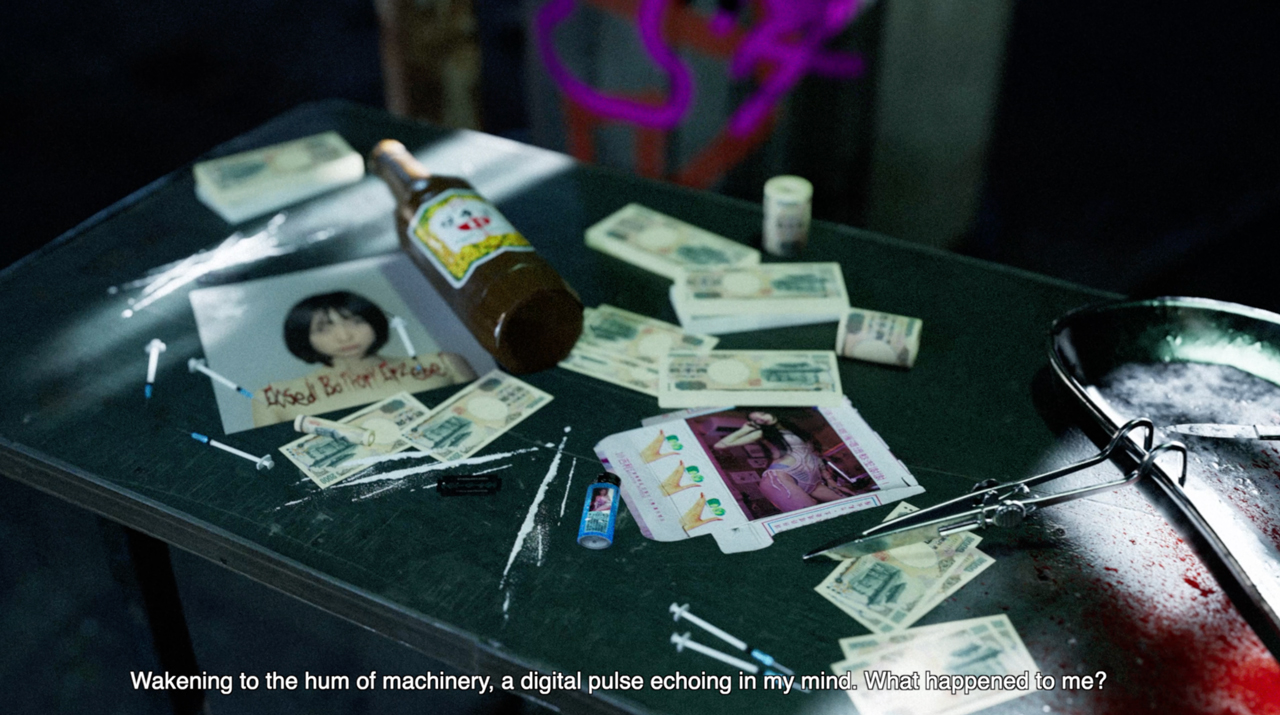
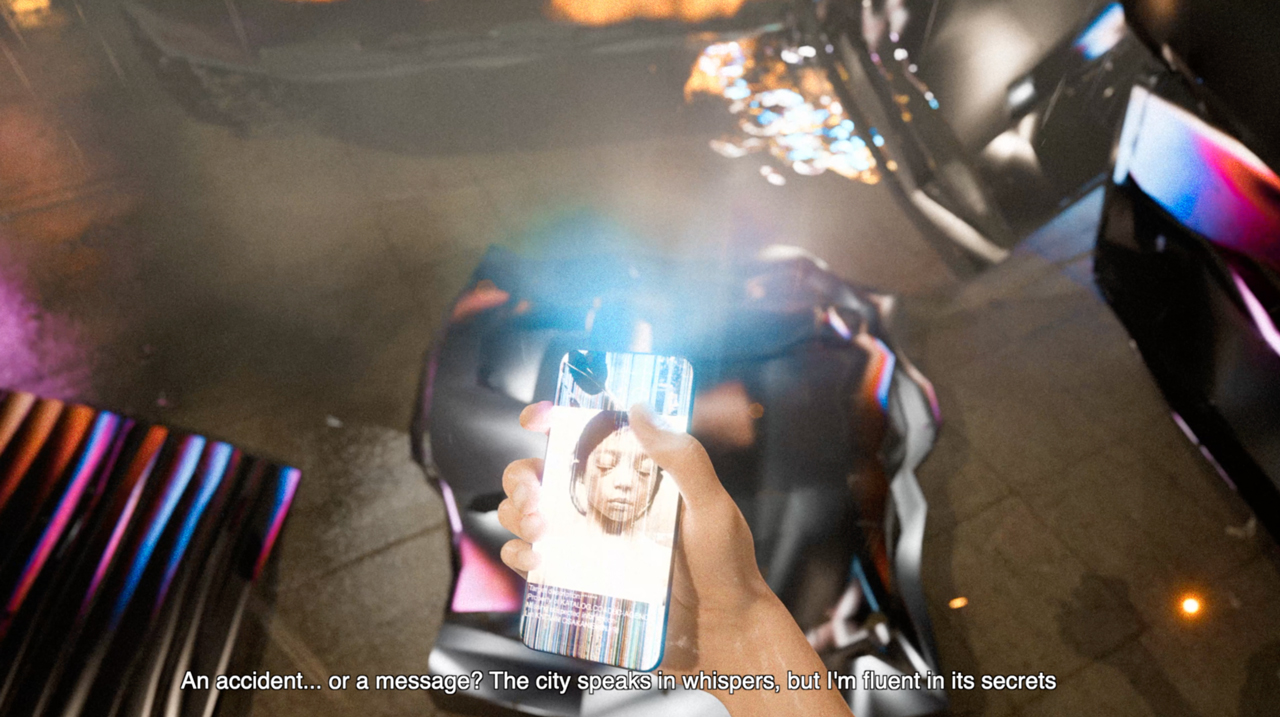
──このプロジェクトの背景には、DNAが保存・記録される、という考え方が根底にあると思います。これはメディアの歴史において非常に重要なテクノロジーだと思います。音楽の歴史でいえば、音楽を録音・再生することが可能になり、音楽そのものを根本的に変えるきっかけになりました。同じようにDNAが保存・記録されるメディアやテクノロジーが発展した時、人間そのもののあり方にも変化がありうるのでしょうか?
あなたの指摘は深く、説得力がある。DNAを保存し記録する能力は、音楽録音の出現と同様、技術的に重要なマイルストーンとなる。音楽の歴史において、録音と再生は、音楽の創作、流通、体験のあり方を根本的に変えた。音楽は、刹那的なライブ体験から、複製され、共有され、無期限に再訪できるものへと変化した。
同様に、DNAの保存と記録について考えるとき、私たちは人間存在の本質を変革する可能性を見ている。このテクノロジーは、私たちのアイデンティティや遺伝、さらには生と死についての理解の根本的な側面を変える可能性がある。もし私たちの遺伝情報が保存され、複製されるようになれば、個性や連続性、そして人間であることの意味について、深遠な問題を提起することになる。
このような進歩は、倫理的、哲学的に重要な議論を引き起こす可能性がある。例えば、この遺伝情報は誰のものなのか?どのように使用されるのか、あるいは悪用される可能性はあるのか。特定の形質を強化するために操作され、新たな不平等や差別につながる可能性はないのか?
『DIGITAL BODY COPYRIGHT』では、個人の身体データが商業化され、所有権と管理に関する重大な疑問が提起される世界を想像することで、これらのアイデアを探求する。DNAを保存し記録する技術は、人間であることの本質を変える可能性がある。私たちは、このような可能性について考えを喚起し、私たちが責任と倫理を持ってこの未来を切り開く方法について対話を促したいと考えている。
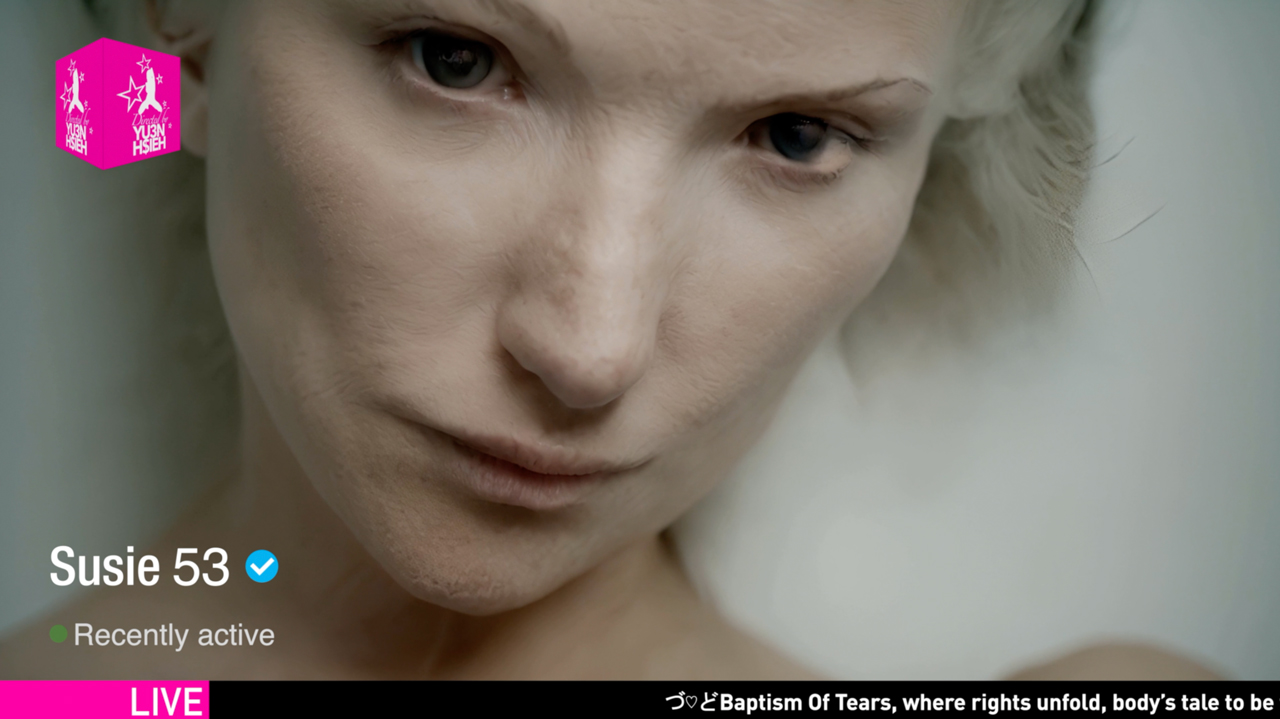
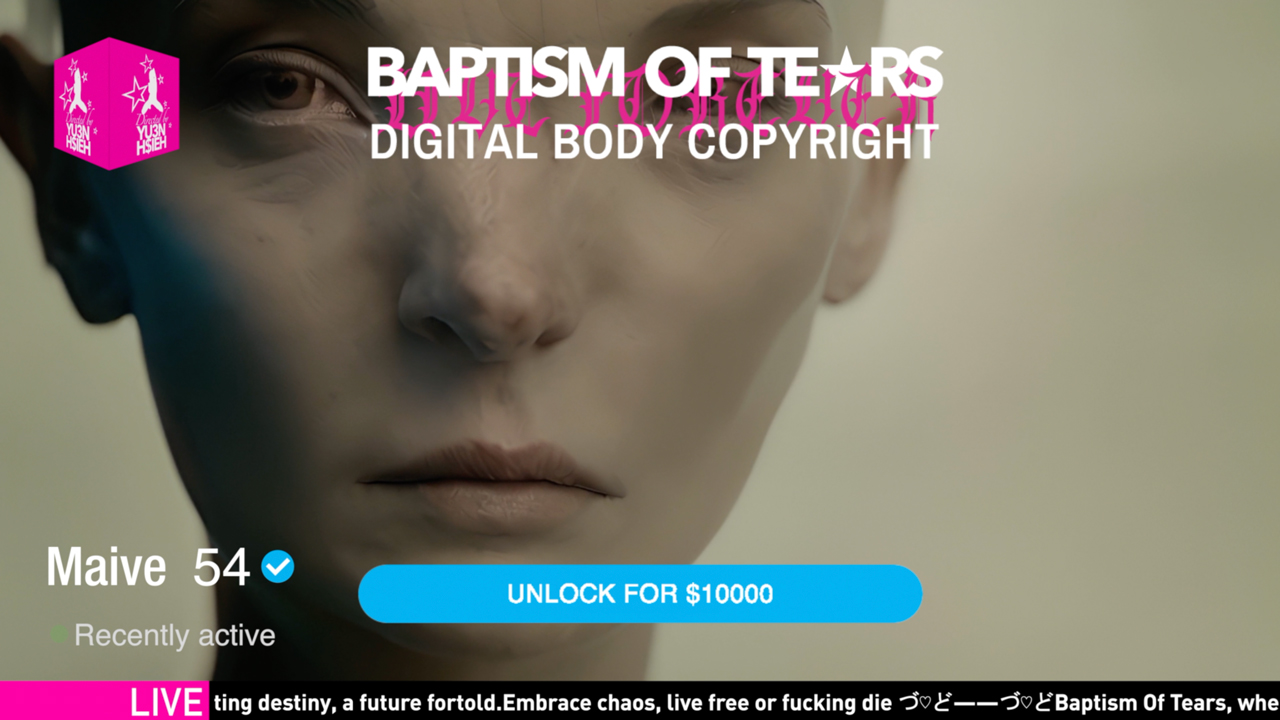
──このような身体感覚にまつわる倫理問題の背景には、国家によって宗教観や倫理観が強く影響すると思いました。例えば現代(2024年現在)における身体感覚の話でいえば、韓国は他国より整形が文化として成立しています。これは韓国の倫理観や宗教観に基づいていると思います。同じようにもしこのプロジェクトが現実で起きた場合、そのような宗教観や倫理感はどのように考えますか?
個人の自律性と身体の所有権:『DIGITAL BODY COPYRIGHT』に具現化された概念を通じて、個人の自律性と、自分の身体とデータの所有権を再検討する機会がある。美容整形手術のような倫理的に重大な意味を持つ選択においては、個人の身体に関する決定権を支持すると同時に、潜在的な心理的・生理的リスクを認識することが不可欠である。
社会的価値観と技術の発展:AI技術の絶え間ない進歩に伴い、美容整形やその他の身体改造技術のような施術は、ますます普及し、技術的にも洗練されてきている。とはいえ、作品に示されたコンセプトから洞察を得るには、技術が社会的価値とどのように相互作用するかを熟考することが不可欠である。技術の進歩と伝統的価値観の尊重のバランスを取ることが重要です。
倫理的な解決策:美容整形のようなトピックにおける宗教的・倫理的信条の影響について深く議論することで、多様な文化的背景を考慮した、よりバランスの取れた敬意あるアプローチを育むことができる。教育、異文化交流、相互尊重を通じて、私たちは倫理的解決のための、より包括的で尊重に満ちた道を見出すことができる。
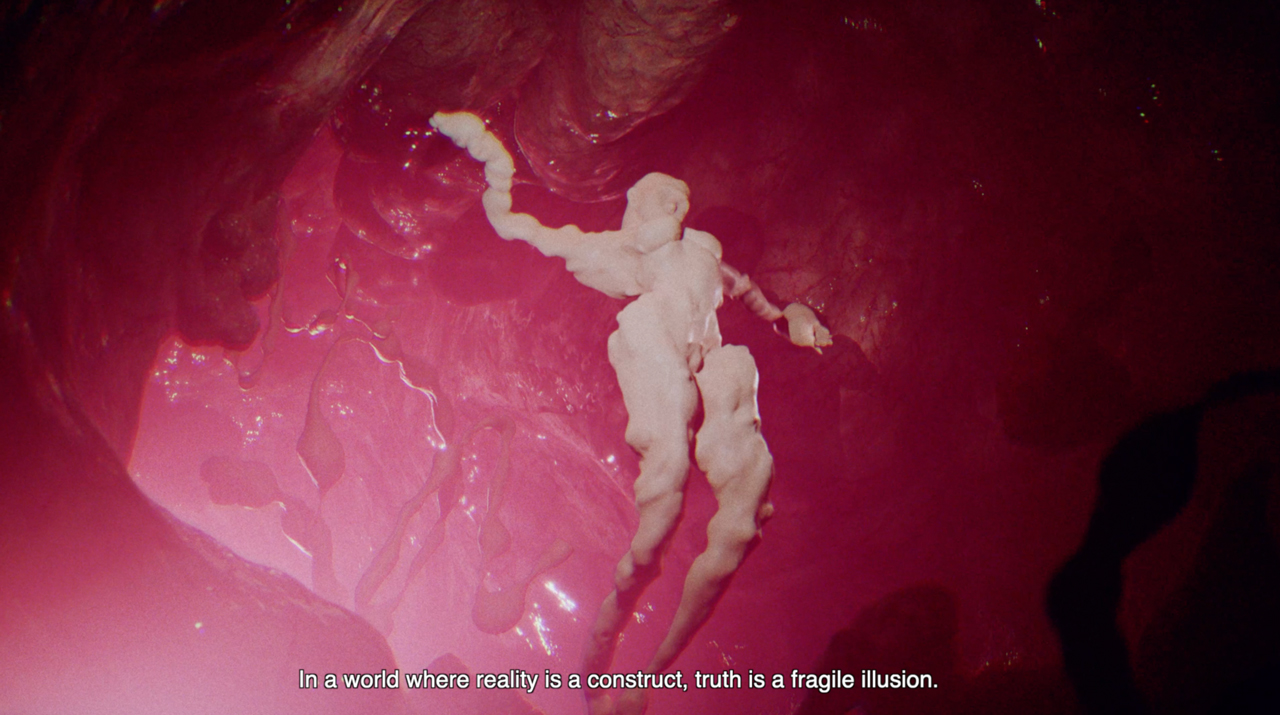
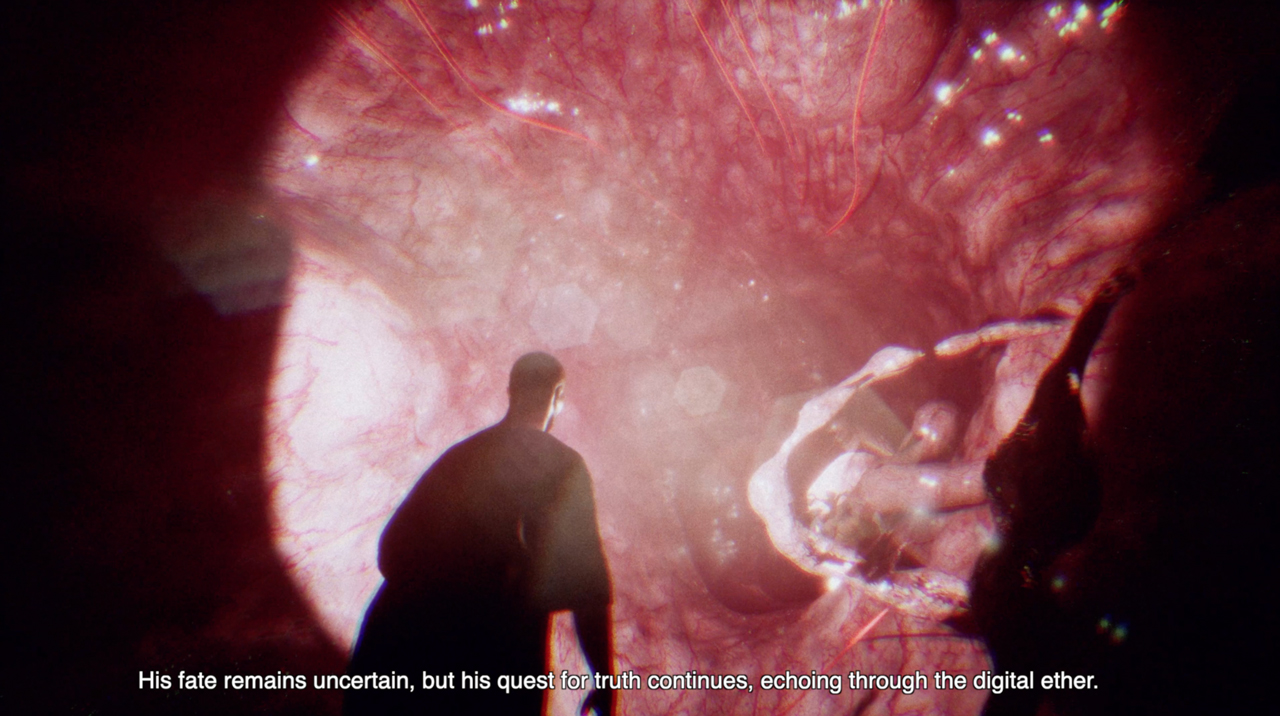
──このプロジェクトは国家によって管理される一方、裏の闇稼業としても成立すると思いました。例えばマフィアや日本のヤクザのような、闇の事業を行う人たちが、テクノロジーによって不正にDNAを複製したりするような危険な状況が想定されます。他にもそのような闇稼業の危険性とかは考えられますか?もしくはそのような物語はあると思いますか?
物語は未来の世界、大阪から始まる。大阪の仮設ネオンの下、平凡なストリートカメラマンのKaitoは、一見無害なデータファイルが詰まった謎のUSBメモリーを発見する。何気なくファイルを開いたKaitoは、監視、肉体改造、隠された秘密が織り成す危険な罠に知らず知らずのうちにハマっていく。これらのファイルには、意外にも盗まれた生体機能データが含まれており、取引された秘密の陰謀が静かに展開される。
やがて、マフィアや犯罪組織が未公開の目的のために闇市場でDNAを意図的に複製しているという都市伝説的な噂が広まり始める。Kaitoは、未知の陰謀に巻き込まれないように身を守りつつ、このデータ取引の起源を追跡するために地下の闇市場に深く分け入らなければならないという、危険で知的挑戦的な状況に身を置くことになる。
一方、闇取引の影は大阪全体に迫り始め、人々に無形の恐怖感を植え付ける。Kaitoは闇市を渡り歩き、真実を暴き、データの裏に隠された暗い秘密を明らかにしなければならない。
この物語は、データ流出や個人のプライバシー侵害だけでなく、権力闘争や生命の危機、自由意志の葛藤など、闇市場がもたらすさまざまな危険を暴いていく。未知と危険に満ちたデジタルの世界で、Kaitoは自分の限界に挑戦し、正義を守り、街全体の未来を左右する霧に包まれた謎を解き明かそうとする。
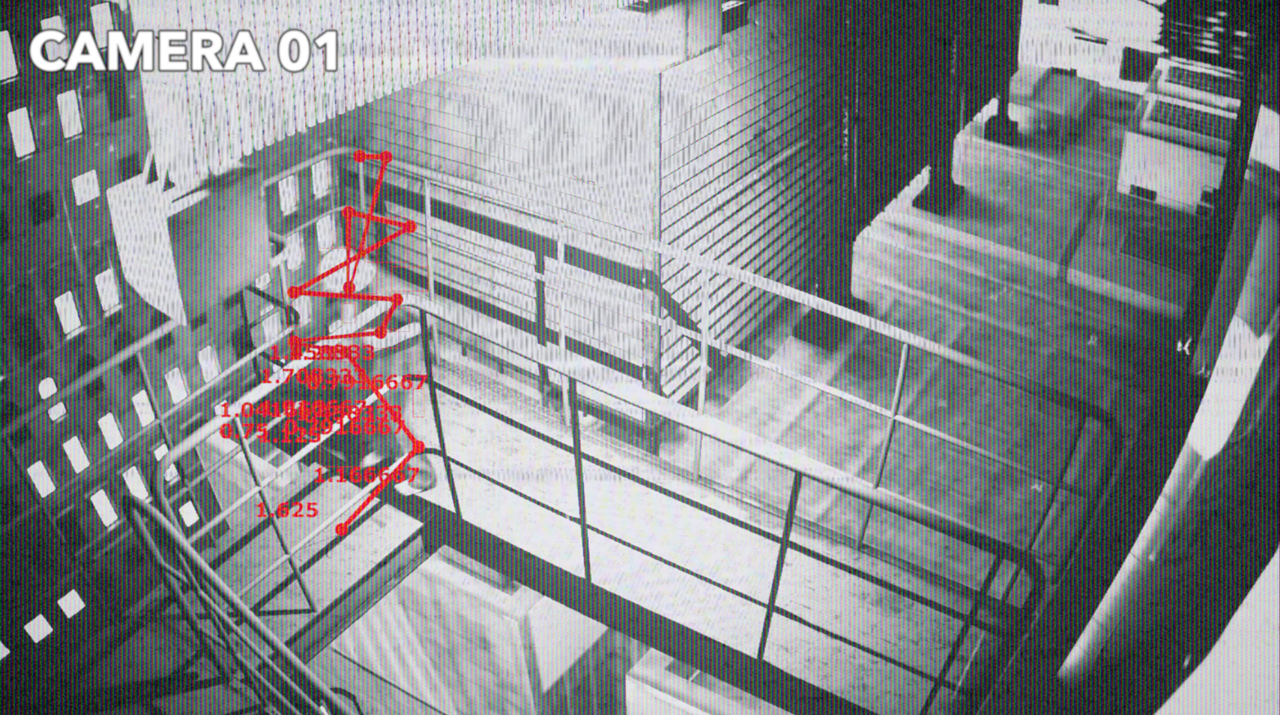
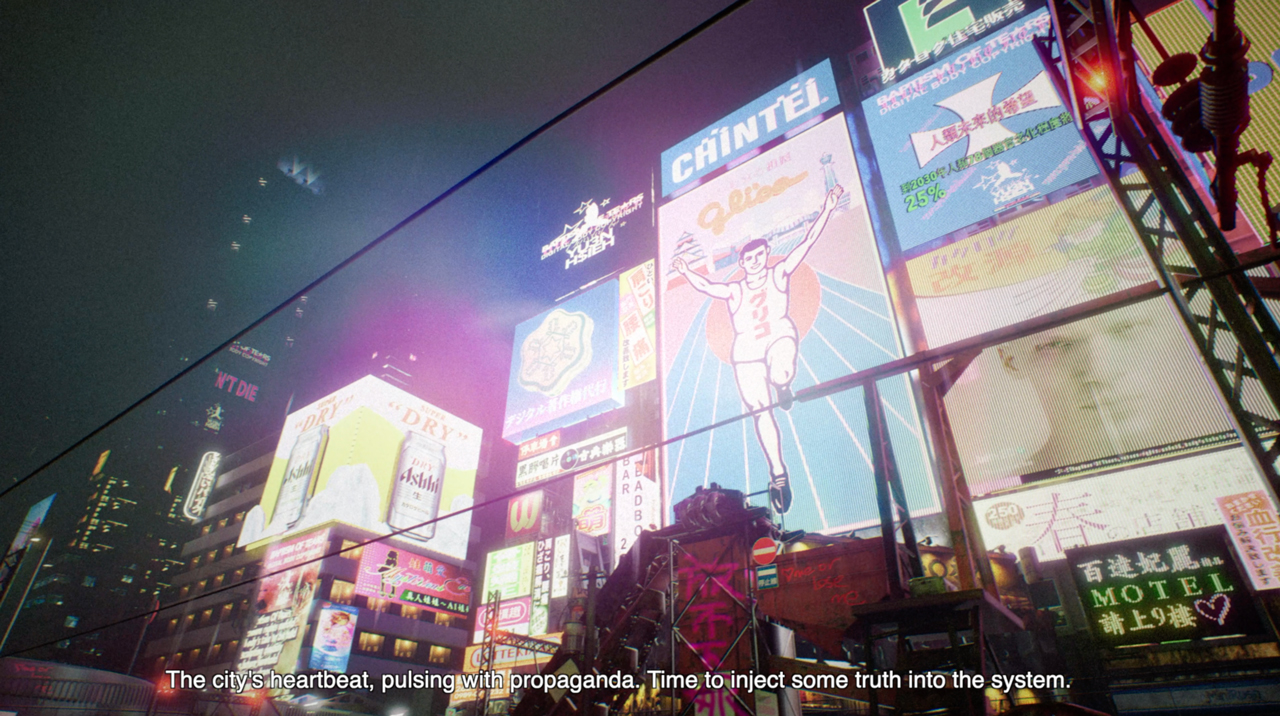
──YUENはバーチャル・リアリティー、メタバースなどのような世界に対して、幻想的な物語を創造するより、現実にありえそうな不気味な発想が作品に反映されていると感じました。バーチャル・リアリティーのような空想を創造できる技術を選択肢ながら、なぜ現実の身体などと接続して物語を創造するのですか?
この創造的な選択によって、私は人間の脆弱性、感情、思考を探求することができただけでなく、AI技術が人間の生活に与える影響についても掘り下げることができた。フィクションの物語と現実の出来事を融合させて描くことで、私はAIとテクノロジーや倫理が交差することで巻き起こる課題や可能性を掘り下げることができた。
母との別れは私に大きな影響を与え、個の人間の感情的な繋がりや人生の意味にもっと焦点を当てるよう促してきた。架空のキャラクターと現実世界の複雑なストーリーを絡ませることで、私は喪失、追悼、再接続のテーマを探求し、観客を思索の感情の旅へと導くことを目指している。
この創作方法によって、私は人間の複雑な性質を個人的なレベルで正直に明らかにすることができ、技術、感情、人生の意味について観客の深い考察を刺激し、深めることができる。現実の感情やスピリチュアルな側面を物語に吹き込むことで、私はニュアンスのある感情体験や知恵の探求を提示し、観客にテクノロジー時代における人間の本質や感情の普遍性について熟考するよう促すことを目指している。
どんな嵐の中でも、天使があなたを守ってくれますように。 ꒰ঌ ૮ ོ .- ༝ -. ོ𑁬 ໒꒱


──First, let me ask some basic information. YUEN has created works using digital technology and video, right? This time, you are also creating a virtual world with 3DCG, and the theme of the story that unfolds in it is “DIGITAL BODY COPYRIGHT,” correct?
That’s correct. I’ve always been passionate about using digital technology and video for my personal project. This time, with “Digital Body Copyright,” we are using the Unreal Engine game engine and Stable Diffusion to build a futuristic virtual world. The story delves into the issues of body data and virtual identity ownership in the digital age, exploring the ethical and societal challenges that arise from these concerns.
The concept behind this work is deeply influenced by the rapid growth of AI over the past year. AI has advanced to the point where it can replicate and replace many human skills and functions, raising significant questions about identity, ownership, and control. In this context, “Digital Body Copyright” examines how our body data and virtual selves can become commodified and controlled by powerful entities. By using advanced technologies like Unreal Engine, I aim to create a visually immersive experience that prompts viewers to reflect on the implications of living in a world where our digital and physical identities are increasingly intertwined and subject to manipulation.
Through this film, I hope to provoke thought and conversation about the rights and protections of our digital bodies and data in an era of unprecedented technological advancement.
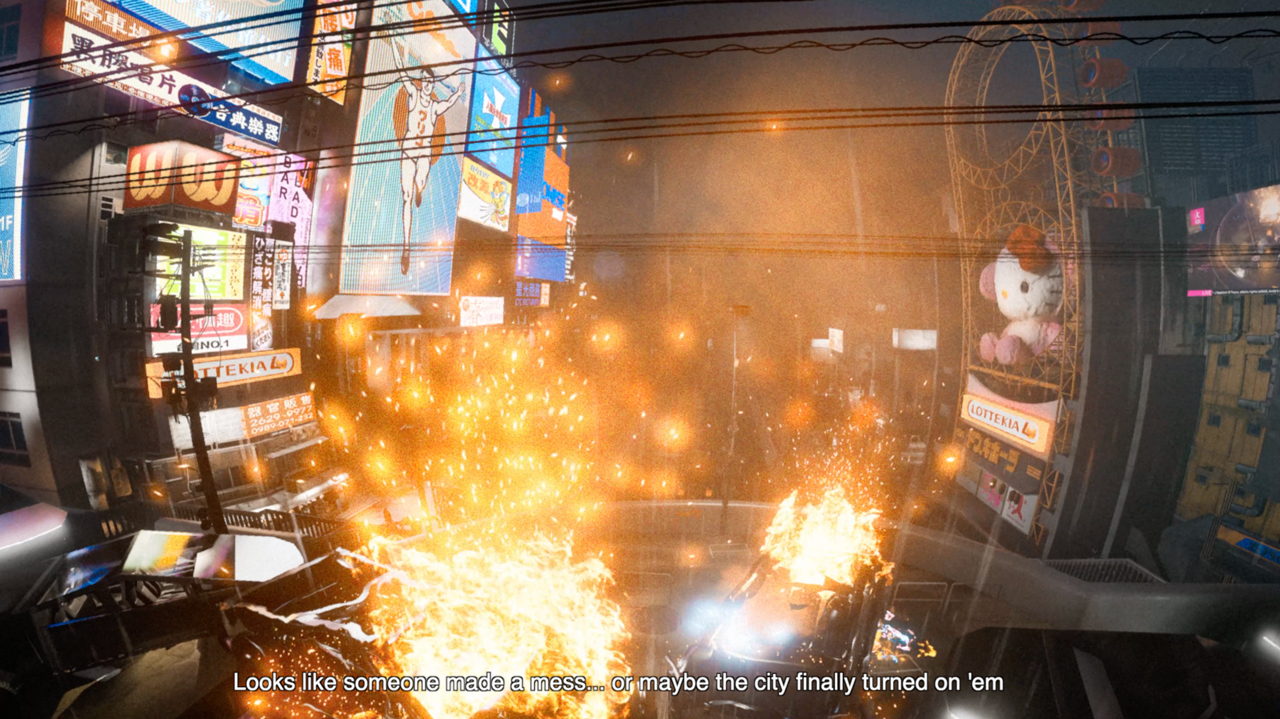
──I have a question about the story of this project. I find it very intriguing, and I also think that treating human DNA as data is a possibility that could happen in reality. I predicted that this could lead to the idea of whether there is superiority or inferiority among humans. I believe that this kind of thinking, which connects human superiority or eugenic ideas to technological numbers, holds ethical dangers. How do you view this point?
Thank you for your insightful question. Indeed, the idea of treating human DNA as data and the potential for such data to be commodified is a central theme in “Digital Body Copyright.” In this story, we explore the ethical and societal implications of a future where personal data, even down to our DNA, can be owned and manipulated by corporations.
You raise a significant concern about the ethical dangers of associating human superiority or eugenic ideas with technological metrics. This is a critical issue that we wanted to highlight through our narrative. When technology begins to quantify and categorize human traits, it risks reinforcing or even creating new forms of discrimination and inequality. This kind of reductionist thinking can dehumanize individuals and ignore the complex, multifaceted nature of human identity.
In our story, we specifically address the dangers of such practices. By showcasing a world where body data and identity are traded as commodities, we aim to provoke thought and dialogue about the value and sanctity of human life. We highlight the potential for abuse and the need for robust ethical frameworks to protect individuals from exploitation.
Ultimately, “Digital Body Copyright” is a cautionary tale about the importance of ethical considerations in the advancement of technology. It encourages viewers to reflect on the implications of living in a data-driven society and to advocate for a future where technology serves humanity without compromising our intrinsic values and rights.
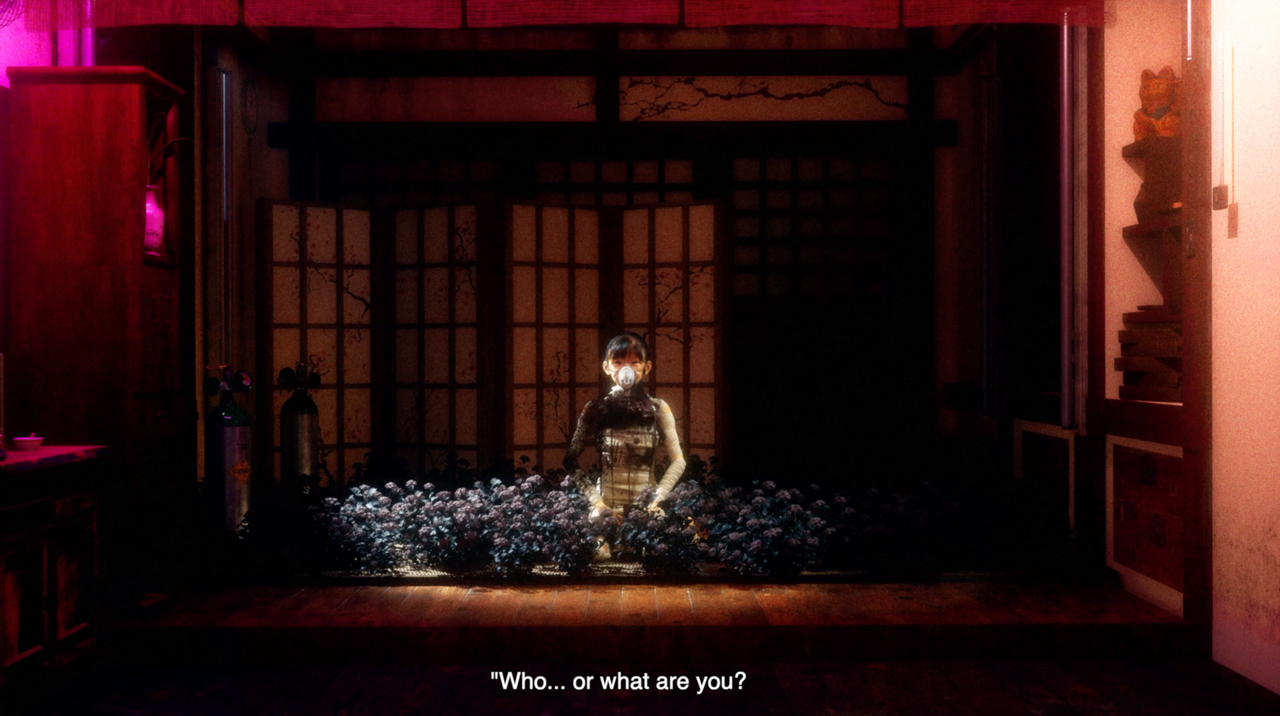
──I believe the underlying idea of this project is that DNA is preserved and recorded. This is a very important technology in the history of media. In the history of music, the ability to record and play back music fundamentally changed the nature of music itself. Similarly, when the media or technology to preserve and record DNA develops, could there be changes in the very nature of human beings?
You bring up a profound and compelling point. The ability to preserve and record DNA, much like the advent of music recording, indeed represents a significant technological milestone. In the history of music, recording and playback fundamentally transformed how music was created, distributed, and experienced. It shifted music from being an ephemeral, live experience to something that could be replicated, shared, and revisited indefinitely.
Similarly, when we consider the preservation and recording of DNA, we are looking at potentially transformative changes to the very nature of human existence. This technology could alter fundamental aspects of our identity, heredity, and even our understanding of life and death. If our genetic information can be preserved and replicated, it raises profound questions about individuality, continuity, and what it means to be human.
Such advancements could lead to significant ethical and philosophical debates. For instance, who would own this genetic information? How would it be used or potentially misused? Could it be manipulated for enhancing certain traits, leading to new forms of inequality or discrimination?
In “Digital Body Copyright,” we explore these ideas by imagining a world where personal body data is commercialized, raising critical questions about ownership and control. The technology to preserve and record DNA could indeed change the very essence of being human, presenting both incredible opportunities and daunting ethical challenges. We hope to provoke thought about these possibilities and encourage a dialogue about how we can navigate this future responsibly and ethically.
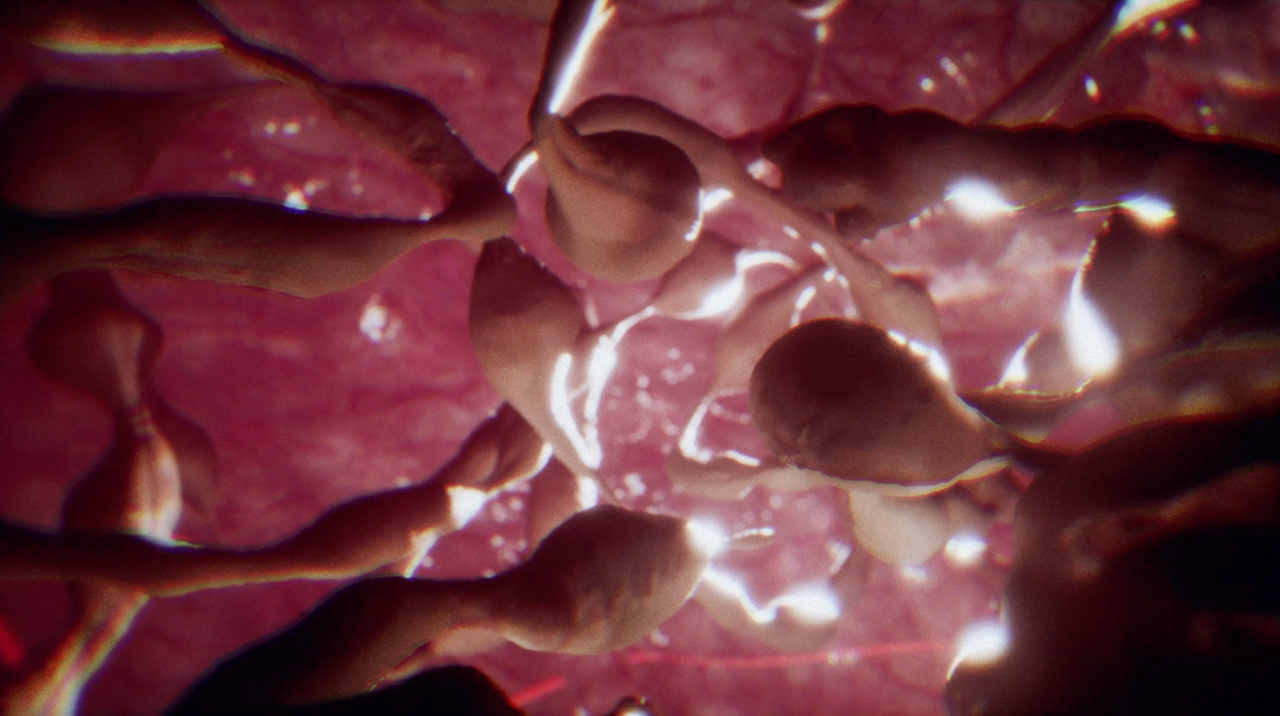
──I thought that religious and ethical views strongly influenced by the state lie in the background of ethical issues related to physical sensations. For example, in terms of physical sensations in the present day (2024), plastic surgery is culturally established in South Korea more than in other countries. I think this is based on South Korea’s ethical and religious views. Similarly, if this project were to happen in reality, how would you consider such religious and ethical views?
Individual Autonomy and Body Ownership: Through the concept embodied in “Digital Body Copyright,” there is an opportunity to reexamine individual autonomy, as well as ownership of one’s body and data. In choices like cosmetic surgery that bear significant ethical implications, it is vital to uphold an individual’s right to make decisions regarding their own body, while also acknowledging the potential psychological and physiological risks involved.
Social Values and Technological Development: With the continuous advancement of AI technology, procedures like cosmetic surgery and other body modification techniques have become increasingly prevalent and technologically sophisticated. Nevertheless, drawing insights from the concepts presented in the artwork, it is imperative to contemplate on how technology interacts with societal values. Striking a balance between technological progress and respect for traditional values is crucial.
Ethical Solutions: By engaging in in-depth discussions about the influence of religious and ethical beliefs on topics such as cosmetic surgery, we can foster a more balanced and respectful approach that considers diverse cultural backgrounds. Through education, cross-cultural exchange, and mutual respect, we can discover more inclusive and respectful avenues for ethical resolution.
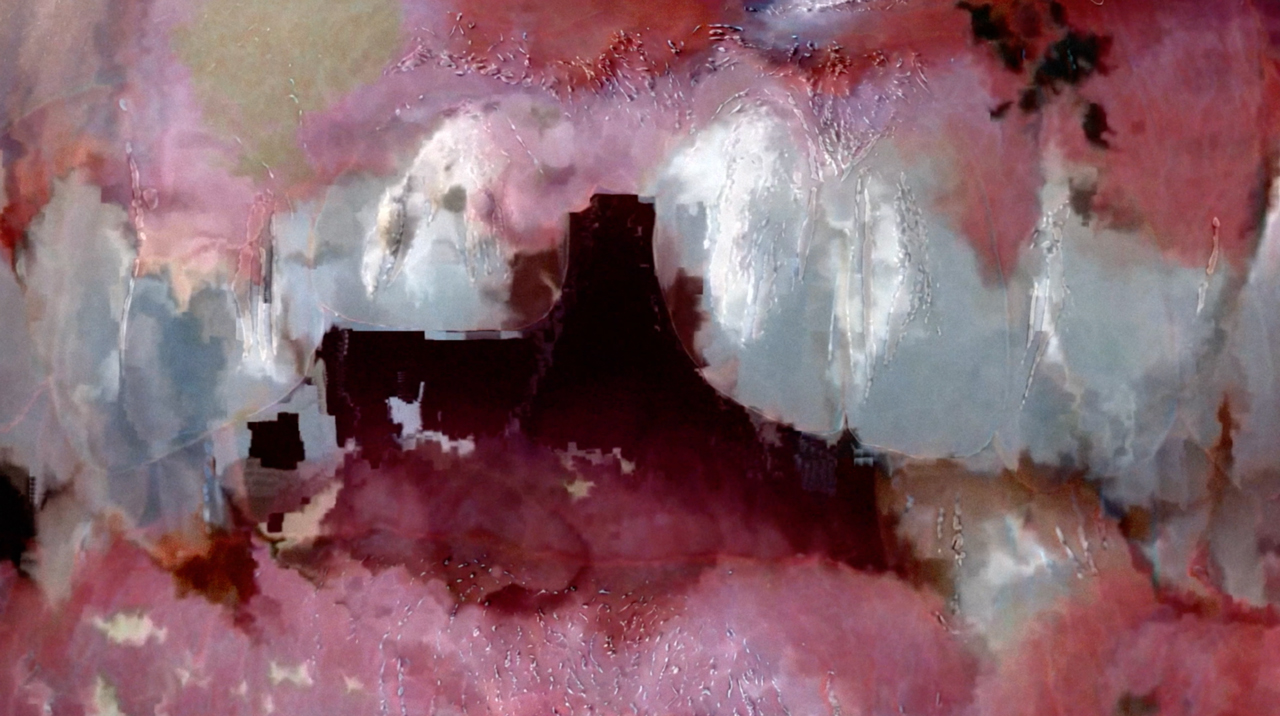
──I thought this project could be managed by the state on one hand and could also be established as an underground black market business. For example, dangerous situations can be envisaged where people engaged in underground businesses like the mafia or Japanese yakuza might illegally replicate DNA using technology. Do you consider other such dangers of the black market? Or do you think there could be such stories?
The story begins in the future world of Osaka. Under the temporary neon lights of Osaka, Kaito, an ordinary street photographer, discovers a mysterious USB flash drive filled with seemingly harmless data files.
As Kaito casually opens the files, he unknowingly falls into a dangerous trap woven with surveillance, body modification, and hidden secrets. These files surprisingly contain stolen biological feature data, and a conspiracy of traded secrets quietly unfolds.
Soon, urban rumors begin to spread, suggesting that mafia and criminal organizations are deliberately replicating DNA on the black market for undisclosed purposes. Kaito finds himself in a risky and intellectually challenging situation, as he must delve deep into the underground black market to trace the origins of this data trade while protecting himself from being entangled in unknown schemes.
Meanwhile, the shadow of black market transactions begins to loom over the entire Osaka, instilling an intangible sense of fear in the people. Kaito must navigate through the black market, uncover the truth, and reveal the dark secrets concealed behind the data.
This story will expose the various dangers brought about by black market activities, not just data breaches and personal privacy violations but also involving power struggles, life-threatening situations, and struggles of free will. In this digital world filled with unknowns and dangers, Kaito will challenge his limits, uphold justice, and attempt to unravel the foggy mysteries that hold the future of the entire city at stake

──I felt that YUEN’s works reflect uncanny ideas that seem likely to happen in reality rather than creating fantastical stories in worlds like virtual reality or the metaverse. Although you have the option to create fantasies with technology like virtual reality, why do you create stories connected to reality and the physical body?
This creative choice has allowed me to not only explore human vulnerability, emotions, and thoughts but has also led me to delve into the impact of AI technology on human life. By portraying a fusion of fictional stories and real-life events, I have been able to delve into the challenges and possibilities sparked by the intersection of AI with technology and ethics.
The departure of my mother has had a profound impact on me, prompting me to focus more on the emotional connections between individuals and the meaning of life. Through the intertwining of fictional characters with real-world complexities in storytelling, I aim to explore themes of loss, mourning, and reconnection, guiding the audience on an emotional journey of contemplation.
This method of creation enables me to honestly reveal the complexity of human nature on a personal level, inspiring and deepening the audience’s profound reflections on technology, emotions, and the meaning of life. By infusing real-life emotional and spiritual aspects into the narrative, I aim to present nuanced emotional experiences and wisdom exploration, prompting the audience to contemplate the universality of human nature and emotions in the age of technology.
May an angel protect you in every storm. ꒰ঌ ૮ ོ .• ༝ •. ོ𑁬 ໒꒱
category:FEATURE
tags:Yuen Hsieh
RELATED
-
2022/03/24
YUEN HSIEH interview
〈AUDIO RIOT〉上海ゲリラパーティーレーベル ロンドンと上海を拠点に世界各地で展示を行い、これまでにAMBUSH、BURBERRY、FENDIのコラボレーションを発表、現在は「DAZED China」の映像部門のヘッドを務めるYUEN HSIEHに4年ぶりに話を伺った。昨年からスタートさえたパーティーレーベルAUDIO RIOTについて。 – まずはあなたのことを教えてください。前回のインタビューは4年前ですね。あれから何か変化はありましたか? YUEN HSIEH : ☆⌒ヽディレクター/インターネットアーティスト/DJとして活動しているYUEN HSIEHです。..。.:*☆ COVID -19は全てを変えてしまいましたが、なぜかインターネットで皆が新しいチャンスをもたらしてくれました。この機会を利用して、彼らの心を揺さぶりたいと思います。(*꒦ິ⌓꒦ີ) – 今はどんな音楽を聴きますか?好きなアーティストは? YUEN HSIEH : ☆カラオケに行くと台湾の歌をたくさん歌うし、友達を驚かせるために新しい曲も練習しないと。撮影中はテクノやヒップホップが多いかな。一番好きなアーティストはBFRNDです。haha♡ – 上海のクラブミュージックシーンはあなたから見て、今どのような状況ですか? YUEN HSIEH : COVID – 19の期間中も上海の音楽シーンはとてもアクティブでエネルギッシュだと思います。クラブカルチャーは、睡眠障害を持つ人や、この街に新しいアイデアを持ち込みたい人にとっての架け橋になりますし、音楽は忘れ去られたようなビルや倉庫の見方を変える重要な要素かもしれません。ミュージシャンやDJは、人々を祝福し、その出来事の一部になるよう促すこの種のパワーの源です。それは多くの面で地元の才能の育成に役立ちましたが、国際的なアーティストとのコラボレーションの機会や旅行の経験は失われました。様々なバックグラウンドを持つ人たちと一緒に旅をし、お互いの知識や文化を共有することが一番の喜びでした。なので、会場やファッションショー、インタビューなど、ほとんど同じ顔ぶれで、ちょっと疲れることもあります。色んな業界でニューフェイスが歓迎されて、惰性的な考え方にインパクトを与えることができればいいかなと。ᒄ₍⁽ˆ⁰ˆ⁾₎ᒃ♪♬ – なぜパーティーを始めようと思ったのですか? YUEN HSIEH : ゚゚・*。•̩̩͙✩•̩̩͙*˚ ˚数年前からアマチュアとしてDJをしていましたが、今まで自分でパーティーを開いたことはありませんでした。昨年、友人と自分の誕生日パーティーを企画して、DIYやリメイクアーティスト、ドラァグクイーン、ミュージシャンなどの若手をたくさん誘って、友人のフォトスタジオと繋がってる倉庫で初めてのゲリラパーティーを開いたんです。飲み物は自分で用意し、最終的には300人以上が集まりました。近所の人たちから苦情が来て、警察が来たりもしましたけど(笑)。その後、多くの友人から「AUDIO RIOTというパーティーレーベルで定期的にやったほうがいいよ」と言われました。AUDIO RIOTは、COVID-19の期間中に、様々な若い才能が一緒に仕事をし、パーティーをし、リンクできるようなコミュニティを形成することを目的としています。解放の精神、反逆者、活動家。☆≡≡○ -{|> AUDIO RIOTは、YUEN HSIEHが立ち上げ、XIWIが共同設立者のゲリラ・パーティー・レーベルです。コミュニティは、ヴィジュアル、サウンド、テクノロジーを組み合わせてエッジの効いた美学を作り出し、様々なバックグラウンドを持つアーティストと協力し、異なる分野の若いアーティストが繋がり、コミュニケーションするための自由でボーダレスなコミュニティを形成しています。AUDIO RIOTは、All Club、44KW、TAG、Tank Art Center、GUANXI、YINGYANG、FINAL , AXIS , 151, POTENT , SYSTEMなどでゲリラパーティーを開催しました( ˇ佞ˇ ) – 4月9日にFINALで開催されるパーティーはどのような内容ですか? YUEN HSIEH : 「AUDIO RIOT X PURE G|SYNAPSE」シナプス – 2つのニューロン間、またはニューロンとエフェクター細胞間が接触して情報を伝達すること。シナプスは、1897年にイギリスの神経生理学者CS
-
2018/07/31
YUEN HSIEH interview
88rising、Nike、adidas、Chanelなどの映像を手がける映像作家。 Yuen Hsieh(ユエン・シェイ)はロンドンと上海を拠点にする映像監督である。ケニア、アイスランド、チェコ共和国、東京など、様々な都市で撮影を敢行し、ロンドン、ベルリン、モナコ、北京、台北でアート作品の展示を行ってきた。世界中を飛び回る彼はこれまでにNike、adidas、Chanelなどのブランドとのコラボレーションや、88risingのアーティストのミュージックビデオの制作なども行ってきている。Yuen Hsiehとはどういう人物なのか。メールインタビューと共に、これまでの映像作品を振り返える。 – 今どちらにお住まいですか?ロンドン?それとも上海? Yuen Hsieh(以下、Yuen) – 今年上海に引っ越したばかりです。その前まではロンドンに住んでいました。 – 映像制作を始められたきっかけは何だったのでしょうか? Yuen – Central Saint Martinsで勉強していた2006年の時点では、グラフィックデザイナーとビジュアルアーティストとして活動していたんですよ。僕の作品って、変わった人を追いかけてみたり、水の中で絵を描いてみたりと、なんていうかストーリーに満ちているんですね。それで自分の作品やパフォーマンスを自分で記録することも始めたりもして、そのうちに他のみんなと一緒に映像を作り始めたんです。その中で京都から来た交換留学生が1人いて、僕たちは一緒に「ELECTRONIC COMMUNICATION」というプロジェクトをやったこともありました。その後、ヘッドピースを手がけるアーティスト武田麻衣子さん(Björkのヘッドピースも手がけるデザイナー)と一緒に仕事をするまで、音楽やフットウェア、メンズウェアなど様々な分野で、たくさんの学生と一緒に仕事をしていて。武田さんと働いてことが、SHOWstudioのような、有名な会社と仕事をする可能性を広げてくれたんです。 – 例えば、どんなものがインスピレーションになりますか? Yuen – 18歳頃はCentral Saint Martinsに入学するためのポートフォリオの準備をしていたんですけど、それまで付き合っていた彼女と別れたばかりで、それから何年も彼女がいなかったんですよね。で、当時は日本のポルノに夢中で、その時はポルノスターの妄想しかしてなかったんです。軍隊に入隊して、ロンドンに住むようになってからは変わったけど、あの時は本当にどうかしてたような気がします。あの時の感じを『Like A Mercedes』で再現したいと思ったんです。あの時期のタイムカプセルみたいなMVなんですよ。 – 中国やアジアといった国や地域はあなたの映像に影響を与えていますか? Yuen – もちろん影響はあります。『修龍(XIU LONG)』というプロジェクトをやったことがあるんですが、台湾人の文化の衝突を表現しています。台湾と僕の友人へのトリビュート作品で、ロンドン・デザイン・ビエンナーレでサウンドと料理と映像を使ったパフォーマンスイベントを開催したんですが、国際的なところで僕たちが台湾について表現した初めてのプロジェクトになりました。昔ながらの市場にいる人たちとか、台湾の生活において日常にいる人たちを参考にしていくつかの登場人物たちを作ってみました。で、プロジェクトのために台湾人のラッパーに台湾についての曲を作ってもらったりもしました。タイトルは、誰かが不満を訴えて抗議しているのに全然相手にされない、そんなときに台湾で見られるグラフィティです。(台湾には)中国と日本からの文化も混ざっていて、その色々な文化がたくさん混ざっているクレイジーさみたいなものを世界に提示していきたいと考えてます。 – 88risingとの仕事はどのように始まったんですか? Yuen – 1年前にLexieにメッセージを送って、そこから彼女と仲良くなって、僕らはミュージックビデオの制作について話し合っていたんです。しばらくしてから、僕はこのミュージックビデオのプロジェクトに88risingが関わっていてワールドワイドなプロモーションをしてくれるって話を知ったんです。 Yuen – 88risingとはMC JINのMV『Make Your Move』でも一緒に仕事しました。彼は中国ヒップホップ界のゴッドファーザー的存在なんですが、俳優もしていて映画「ワイルド・スピードX2」にジミー役で出演してたから、ミュージックビデオではそのイメージを使ってみました。 – 日本人アーティストの映像制作にも興味をお持ちですか? Yuen – もちろんですよ。SHIYA ENTERPRISEを日本に持ち込みたいですね。 – SHIYA ENTERPRISEとはどういうものでしょうか? Yuen – 僕の映像作品すべてに登場する架空の会社で、『LIKE A MERCEDES』にも登場してるんですよ。例えば、最後のシーンに登場するビデオゲームもSHIYA ENTERTAINMENTのゲームです。 – お気に入りの映画を教えてください。 Yuen – 『マトリックス』、『ピンクとグレー』、『二重生活』 – あなたにとって理想の未来とはどんなものですか? Yuen – みんながSHIYA ENTERPRISEの世界に住めることかな。 <原文> – Where do you live? London?
-
2019/09/03
アジアの文化と創造性|YUEN HSIEHが手がけたDAZED Chinaの映像作品『RADIASIAN』
音楽はTzusingが担当 映像作家 YUEN HSIEH はロンドンと上海を拠点に世界各地で展示を行い、これまでにCHANEL、NIKE、adidasなどのブランドともコラボレーションを果たしてきた。さらに〈88rising〉所属のLexie Liuのシングル「Like A Mercedes」、〈YENTOWN〉所属のPETZのソロアルバム『COSMOS』に収録される「BRO (Prod. star boy & Chaki Zulu)」のMVも手がけている。 今回、新たに創刊されたDAZED Chinaの映像部門をYUEN HSIEHが取り仕切ることになり、創刊に合わせて映像作品『RADIASIAN』を発表。現在アジアから生まれ、発信されるユースカルチャーやクリエイティブのパワーを本作で表現しており、アジアの才能を複数フィーチャーしている。 Lexie Liuに加えて、Yu Zhang、Dain Joon、Adwoa Aboahなど出演した本作の音楽を担当しているのは、〈L.I.E.S.〉からのリリースで知られる中国のプロデューサーTzusing。今作には、今年2月にベルリンの〈PAN〉からリリースされたM.E.S.H.とのスプリットに収録の「The Whistle」が使用されている。 YUEN HSIEH interview: https://avyss-magazine.com/2018/07/31/1637/
FEATURE
- 2026/02/02
-

-
渋谷から新木場廃倉庫レイヴへ|「AVYSS RAVE + ISCARIOT ᭦ (ding)」開催
2/13(金) 渋谷から新木場へ座標を再設定
more
- 2026/01/25
-
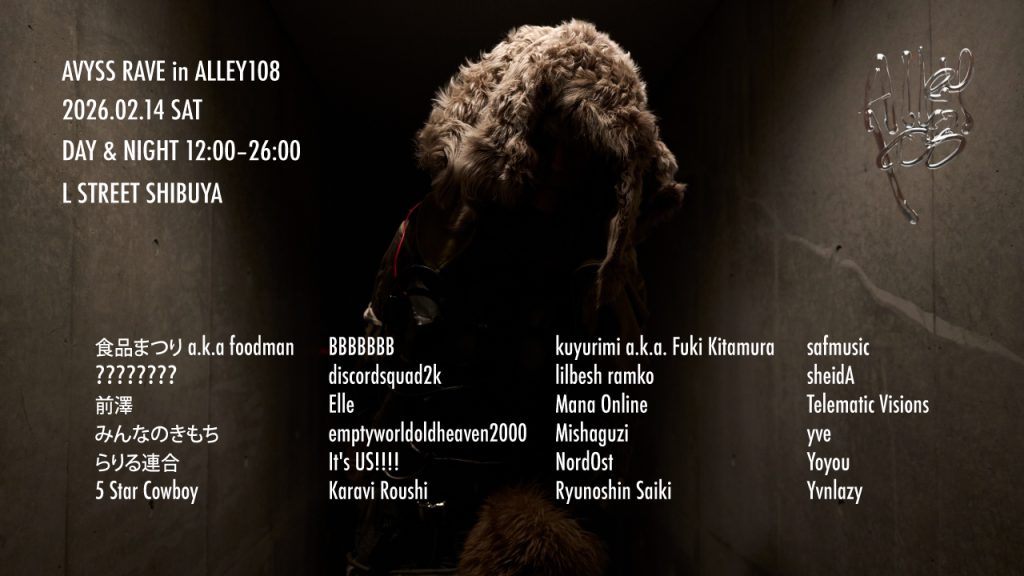
-
渋谷の路地裏に出現する未来都市ALLEY108にて「AVYSS RAVE」開催
2月14日(土) 渋谷センター街の路地をジャック
more
- 2026/01/19
-

-
私の正直な感情について|daine interview
1/23 AVYSS Circleにて来日 more



